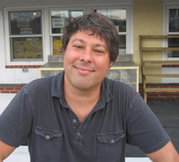|
Note: Bio excerpts are excerpted from the various researchers' web pages
|
Professor Fiske's research addresses how stereotyping, prejudice, and discrimination are encouraged or discouraged by social relationships, such as cooperation, competition, and power. We begin with the premise that people easily categorize other people, especially based on race, gender, and age. Going beyond such categories, to learn about the individual person, requires motivation. Social relationships supply one form of motivation to individuate, and our work shows that being on the same team or depending on another person makes people go beyond stereotypes. Conversely, people in power are less motivated to go beyond their stereotypes. In laboratory studies, we examine how a variety of relationships affect people forming impressions of others. Society's cultural stereotypes and prejudice also depend on relationships of power and interdependence. Group status and competition affect how groups are (dis)liked and (dis)respected. In surveys, we examine the content of group stereotypes based on race, gender, age, (dis)ability, income, and more, finding patterns in the ways that society views various groups. In social neuroscience studies, we show how distinct prejudices activate distinct neural networks.
|
|
Our lab studies these brain regions for Theory of Mind, as a case study in the deeper and broader question: how does the brain - an electrical and biological machine - construct abstract thoughts?
Theory of Mind is an especially exciting case study because: Thinking about other minds is the foundation for both personal relationships and societal institutions, and the human capacities to read and write fiction, to teach skills and pass knowledge down generations, and to make moral judgments, especially to forgive accidents. Deficits of social cognition, like Autism, can be more devastating to individuals and their families than the loss of a limb or a sense. Theory of Mind is a perfect example of the essentially inductive nature of human thought. We don't just build up catalogues of perceptions. We go way beyond the "data" of experience, to infer complex, abstract, invisible causal mechanisms at work in the world. The brain regions involved in Theory of Mind are incredibly robust. We can find the same regions, in 90% of individual subjects, after just 20 minutes of scan time. Similarly reliable patterns of activation are routinely observed for perceptual mechanisms, like primary sensory and motor cortices, but rarely for dimensions of cognition as abstract and complex as Theory of Mind. The 'Theory of Mind' regions thus offer a rare window through the brain to the mind. Our work uses . . . functional magnetic resonance imaging (fMRI) in adults and children, transcranial magnetic stimulation (TMS), neuropsychological patient studies, and eye-tracking and behavioural methods with adults and infants. And while we mostly study social cognition, a few projects in the lab focus on other key examples of a neurally-localised uniquely human cognitive capacities: executive function, and language. I am an associate professor in the Social Psychology Program at the University of Kansas. I got my Ph.D. in social psychology at Stanford University for a dissertation (on the topic of enemyship) based on field research in West Africa. In my current work, I apply a variety of methods (both qualitative and quantitative) to investigate the sociocultural-historical foundations of mind. More specifically, much of my research considers the following topics.
1. Sociocultural foundations of mind and relationship: This research program uses comparative field research in West African settings to illuminate the typically invisible, socially constructed affordances that underlie patterns of mind and relationship observed in mainstream psychological science. 2. A cultural psychology approach to racist oppression: Rather than prejudice and stereotypes, this research program considers "intentional worlds" of racism: everyday constructions of reality (e.g., textbook representations of U.S. history) that (a) reflect particular beliefs and desires and (b) systematically promote "desired" outcomes. Regardless of individual intention or awareness, these constructions of reality can be sufficient to reproduce racial inequality |
|
My research examines the roles of social cognition and emotion in the regulation of behavior, and the neural mechanisms underlying these processes. Much of my work examines these processes in the context of prejudice and stereotyping, although my interests extend to the areas of motivation and health psychology. In each area, issues of behavioral regulation are central and the focus is on mechanism.
Although the questions that guide my work address classic social psychological issues, my approach is interdisciplinary; I integrate theory and methodology from social psychology, cognitive/ affective neuroscience, and psychophysiology to inform my hypotheses and the designs of my studies. This integrative approach is useful because it often leads to novel hypotheses and it promotes the synthesis of research findings across disciplines. My research may be described broadly as social neuroscience; I typically use EEG, event-related potentials (ERPs), and fMRI in combination with behavioral and self-report measures to study social processes. |
|
|
Two basic ideas motivate my research. The first idea is that social psychological theory offers potentially useful tools for changing society in constructive ways. The second idea is that studying attempts to change society is one of the most fruitful ways to develop and assess social psychological theory. Much of my work has focused on prejudice and intergroup conflict reduction, using large-scale field experiments to test theoretically driven interventions.
Through field experiments in Central and Horn of Africa and in the United States, I have examined the impact of the mass media and interpersonal communication on tolerant and cooperative behaviors. I find support for a behavioral change model based on social norms and group influence. To change behavior, I suggest, it may be more fruitful to target citizens’ perceptions of typical or desirable behaviors (i.e. social norms) than their knowledge or beliefs. How do social norms and behaviors shift in real world settings? Some initial suggestions from this research include peer or role model endorsement, narrative communication, and group discussion. My work in post-conflict countries has led to related research on political cultural change and on civic education. I am also interested in social scientific methodology—particularly causal inference and behavioral measurement. |













